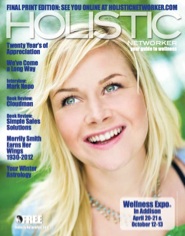Why is James Cameron’s Titanic such a colossal success? I believe that the wizardry behind Cameron’s storytelling is his ability to make us feel deeply about ideas and concepts that we rarely dare to examine. Cameron uses the movie theatre as a modern-day spiritual center, a place where people can experience a deeper sense of their own humanity. In the theatre we sit elbow-to-elbow with several hundred strangers. Together we laugh and cry unashamedly, experiencing an altered state far removed from the mundane world outside the theatre.
It’s a profound coincidence that Titanic was released at a time when so many elements of our fragile civilization seem to be at the breaking point. The world seems to cry out for a savior. Pollution, crime, nuclear armament, plagues, and natural disasters are in the headlines daily. Ironically, sharing these headlines are continual advances in modern technology — faster computers, smart weapons, and new bio-engineered marvels. We are, like Titanic, moving full speed ahead into the darkness, pinning our hopes on technology to carry us along — to save us. Yet, technology cannot save a civilization that has lost touch with the feeling of the essence of life.
In masterfully telling Titanic’s story through the eyes of two young lovers, Jack and Rose, Cameron has struck a chord deep in our collective unconsciousness. In particular, I was moved by his depiction of what it means to be a savior, and what it means to be “saved.”
In telling her story, elderly Rose believed that Jack was her savior and recounts that Jack saved her “in every way a person could be saved.” In the photos of young Rose riding horses and flying airplanes we get a glimpse of the active, full life she lived — a life very different from the self-conscious, inauthentic life her mother wished her to live.
We can look to be saved by another or we can save ourselves. Someone (like Jack) can inspire us by example, but we must decide for ourselves to live an authentic life. Rose’s enlightenment comes in the instant she jumps off the lifeboat to stay with Jack on the sinking ship. In that moment she saves herself and becomes truly free — acting on her free will, unhindered by the burdens of her past, her family, her social status, and her fears.
We can sit in the safety of our personal lifeboats pretending to be alive or we can save ourselves by following our hearts’ desires. When we live inauthentically (to get the approval of others), we are not really living, just acting out a role; a role that becomes stale and predictable. This is not the path of growth. It takes courage to leave the comfortable boundaries of a safe, predictable life, but in daring to follow our hearts we emerge from our two-dimensional roles, remove our masks, and become alive again.
Saving the world is not the job description of a few special people. It’s the calling of each and every person on the planet. Feel the calling of your heart and find the courage to live a life worth living. When each of us becomes awake enough to live authentically from our hearts, we will become our own saviors and shift out of victim consciousness to a place where our actions are Divinely inspired. From this place we can lay the building blocks for an enlightened planetary civilization.
Tony Cecala,
Publisher, The Holistic Networker
©1998, Tony Cecala
About Tony Cecala
Tony is a business strategist. He publishes the Holistic Networker and produces the Wellness Expo. In his spare time he reads about technology and the mind.
- Web |
- Flickr |
- More Posts(165)










